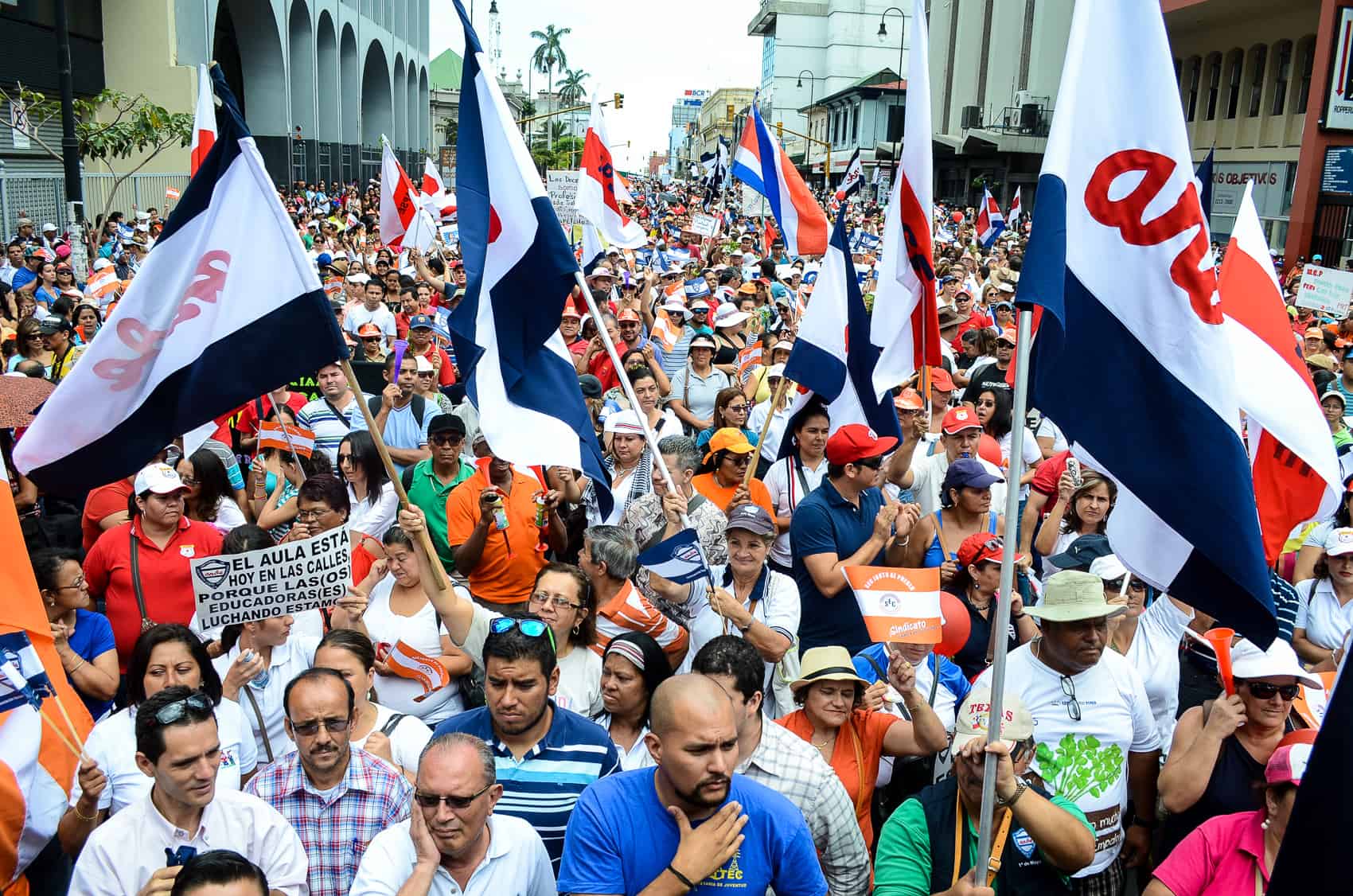Costa Rican Educators Union President Gilberth Díaz on Friday said a nationwide teachers’ strike would continue into a fourth week. Unions will evaluate future actions on Tuesday, following payment reports they are expected to receive from members on Monday.
“We will continue to strike. Actions will include road closures and street demonstrations, and they will continue until we receive a report saying all teachers have received their full wages,” he said.
Hundreds of educators on Friday blocked passage on the capital’s Second Avenue in a march to demand full back pay and a promise that future salary payments will not face delays.
Protesters – mostly public teachers – began a march at 10 a.m. on Paseo Colón near La Sabana Park and arrived at the Finance Ministry in downtown San José shortly after noon.
Teachers’ unions expected the demonstration to be joined by protests across the country, but only small groups gathered in other provinces. Participants in San José’s actions belonged mainly to three teachers’ unions, Caribbean dockworkers and Social Security System employees. A group of public university students and leftist parties also joined.
The National Association of Public and Private Employees (ANEP), a group comprising 110 unions, on Thursday evening decided not to participate in Friday’s march.
ANEP’s Secretary General Albino Vargas in a public statement said that “a matter of logistics would not allow them to provide full support to the public demonstration on Friday.”
Earlier on Thursday, Education Ministry (MEP) officials began collecting data of some 3,000 educators who have yet to receive back pay.
But a report sent Thursday evening by MEP officials indicated that only 262 educators visited the ministry’s 27 regional offices to provide personal information in order to begin the payment process.
Education Minister Sonia Marta Mora said the lack of response by teachers to a government initiative to solve the problem indicated that many probably are waiting for the next payment MEP had promised for next Monday.
The strike, which already has reached its third week, was caused by failures in computer systems used by MEP to pay teachers. Errors affected thousands of educators who did not receive salaries.
On Friday morning, union leaders claimed they had offered the government several solutions such as being paid through any of the teachers’ associations or via checks from any of the country’s public banks.
High School Teachers’ Association (APSE) President Gilberto Cascante said unions seek “any type of efficient payment method” that can guarantee teachers will receive full salaries on time. He added that former Education Minister Leonardo Garnier should explain what happened with the ministry’s funds to pay salaries.
Garnier on Wednesday used social media to deliver a message saying that “a backlog in payment of public teachers’ salaries did not originate from the transition to a new computer system, but rather from problems caused by the old payment system.”
In Friday’s demonstration, teachers carried cilantro bunches to protest remarks made by President Luis Guillermo Solís asking teachers to go back to work. Solís on Wednesday used an old Tico saying: “Bueno es el culantro, pero no tanto,” (which loosely translates to: cilantro is good, but not in excess).
“Enough is enough” Solís said.
Friday’s march ended at 1 p.m., and union leaders entered a meeting with MEP officials. APSE posted on its Facebook page that they would explain their position in a national TV broadcast. The video will air over the weekend on channels 6, 7, 9 and 11.


